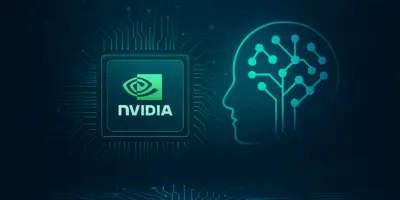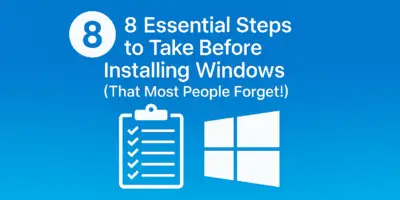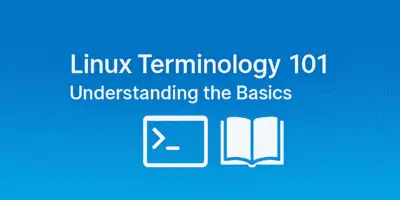Remember when building a new PC meant automatically installing Windows without a second thought? Those days are long gone. What changed? Well, let’s dive into the fascinating shift happening in the PC world right now.
Table of Contents
- The Windows 11 Problem
- The Telemetry Nightmare
- The Locked-Down Experience
- The PC Gaming Community: The Real Power Players
- Enter Steam and Valve: The Game-Changers
- Valve’s Linux Strategy
- The Steam Deck Revolution
- What This Means For You
- The Linux Revolution Is Happening
- My Personal Setup
- Recommendation for Newcomers
The Windows 11 Problem
Windows 11 has become a real headache for many users. And honestly, I can’t blame them. Microsoft’s latest OS feels more like something out of China—stuffed with advertisements and unnecessary features.
Picture this: you’re trying to search for some childhood photos on your computer. You type the file name in the search bar, and what happens? Windows pops up with “Nah, you don’t want your memories—how about a cement ad instead?” I’m not even kidding.
But the ads are just the tip of the iceberg. Microsoft keeps adding features nobody asked for or wants. Remember that Recall feature they had to remove after massive backlash? It was literally recording everything happening on your screen. Log into a website, enter personal information, and Windows Recall would capture it all. Yikes.
Then there’s the infamous Game Bar. Trust me, this thing is blood pressure-raising material. I never asked for it, you never asked for it, nobody asked for it—yet there it is, taking up space and resources.
The Telemetry Nightmare
The most concerning aspect of Windows 11—and what Microsoft seems most proud of—is something called “telemetry.” Simply put, Microsoft collects data from your computer under the guise of “diagnostics” or “system improvement.”
Sure, they’ll tell you it’s just sending crash logs when Word freezes. But in reality? Telemetry knows which applications you open, when you open them, how long you use them, and even tracks your keystrokes. Microsoft knows if you’re using Brave or Chrome instead of Edge. They know every program you run.
Why do they need this info? Not for your benefit, that’s for sure. It’s all about making more money.
They collect your device ID, IP address, hardware serial numbers, and complete device information. Used Bing search? They’ve got your browsing history and search queries. And get this—you can’t even install Windows Home Edition without a Microsoft account anymore. No internet? No Windows installation for you.
The Locked-Down Experience
Windows 11 feels increasingly restrictive. Users can’t control their updates, can’t remove certain pre-installed apps, and are forced to use Microsoft’s preferred applications.
Think about it: you spent serious cash on your gaming PC (and we all know how expensive those are nowadays), yet you don’t have full control over your own system! The computer you bought and paid for isn’t truly yours anymore—Microsoft has the reins.
Yes, there are third-party tools to fix these issues, but they often create more problems than they solve. And let’s be honest, most Windows users aren’t tech experts. They just want their computer to work without diving into complex technical solutions.
The PC Gaming Community: The Real Power Players
When we look at Windows users, they generally fall into two categories:
- Regular users who need computers for work, school, or general purposes
- Gamers who’ve invested heavily in their rigs
That second group—the gaming community—is actually the one with the power to determine the future of operating systems. Why? For several reasons:
First, the number of gamers switching to PC gaming is growing exponentially. Second, gamers typically have more technical knowledge than average users. Think about it—when your non-tech-savvy relatives have a computer problem, who do they call? That person who’s always playing Minecraft, right?
When someone wants to build a new PC but doesn’t know much about hardware, they’ll seek advice from the gaming friend who built their own high-end rig. These gamers are the ones influencing which operating systems people choose.
Enter Steam and Valve: The Game-Changers
This is where the story gets interesting. The biggest catalyst for the Linux migration has been Steam—or more accurately, Valve (Steam’s parent company).
It all started back in 2012 when Windows 8 arrived. Man, that OS was like the Voldemort of operating systems—we don’t speak its name. It introduced the first Microsoft Store and felt more like a mobile OS than a computer system.
It became clear that Microsoft wanted to create a closed ecosystem similar to Apple’s iOS—where developers would have to publish through the Microsoft Store, giving Microsoft a cut of every sale.
For a giant like Steam, this was a massive threat. We’re talking billions in revenue that would suddenly be subject to Microsoft’s fees. Gabe Newell, Valve’s president, saw this coming and made a brilliant decision: “We need to stop depending on Windows.”
Valve’s Linux Strategy
In 2013, just after Windows 8’s release, Valve launched Steam for Linux. This was unprecedented—a major gaming company supporting Linux! Most big companies only develop for the platform with the largest user base (Windows), but Valve was playing the long game.
They even worked on their own Linux distribution called SteamOS and released dedicated hardware called Steam Machines. While Steam Machines didn’t sell particularly well, sales weren’t the primary goal. The real objective was creating an escape route from the Windows ecosystem and sending Microsoft a warning: “Keep pushing, and gamers will have an alternative.”
The real game-changer came in 2018. Valve noticed that developers were still ignoring Linux and focusing exclusively on Windows. Their solution? Proton—a compatibility layer that allows Windows games to run on Linux. This eliminated the need for developers to create separate Linux ports of their games.
Proton has evolved to support DirectX 11 and 12—previously Windows’ main advantage for gaming. Now Valve had everything they needed to function independently on Linux.
The Steam Deck Revolution
In 2021, Valve combined everything they’d been working on since 2013 into the Steam Deck—a handheld gaming PC running Linux that sold millions of units. The device introduced countless people to Linux gaming with its excellent performance and portability.
For the Steam Deck, Valve refined their SteamOS further, switching from Debian to Arch Linux as the base. This device proved that gaming on Linux wasn’t just possible—it could be amazing.
What This Means For You
You might be thinking, “Cool story, but how does this affect me?” Well, thanks to Valve’s efforts, every Linux user now has access to thousands of games that previously would only run on Windows. This means you now have a legitimate alternative to Windows without sacrificing your gaming library.
Linux offers everything Windows does without the privacy concerns, bloatware, or restrictions. You actually own your system rather than the system owning you.
The Linux Revolution Is Happening
We’re seeing a real shift in the tech community. Recently, a popular YouTuber called PewDiePie with over 110 million subscribers built a new PC and shocked everyone by installing Linux instead of Windows. and 9 days ago He make another video titled “I installed Linux (so should you)” with 5M views caused quite a stir, with viewers asking how they could switch as well.
This growing interest makes me incredibly happy. As the Linux community grows, developers will take notice and create more Linux-specific software, further improving the ecosystem.
My Personal Setup
Currently, I have a dual-boot system with Windows and Linux. I’m using Windows for video editing and content creation, while I use Linux for tech projects, automation, and general tinkering.
I’ve been testing various Linux distributions in virtual machines to find the most beginner-friendly option, as I’m planning to make a post about how to switch to Linux or at least try distributions in a virtual environment before committing.
Recommendation for Newcomers
I don’t recommend completely abandoning Windows right away. Instead, set up a dual-boot system with a boot loader that lets you choose between Windows and Linux when you start your computer.
There’s still one unsolved issue: kernel anti-cheat in some games doesn’t work on Linux yet. That’s one reason I still keep Windows around, unfortunately. Use both until Linux support grows enough that you won’t miss anything then you can make the full switch.
The future looks bright for Linux, and I genuinely hope it becomes the dominant operating system someday. The freedom, privacy, and control it offers are unmatched. If you’re tired of Windows’ increasing restrictions and privacy concerns, maybe it’s time to give Linux a try.



